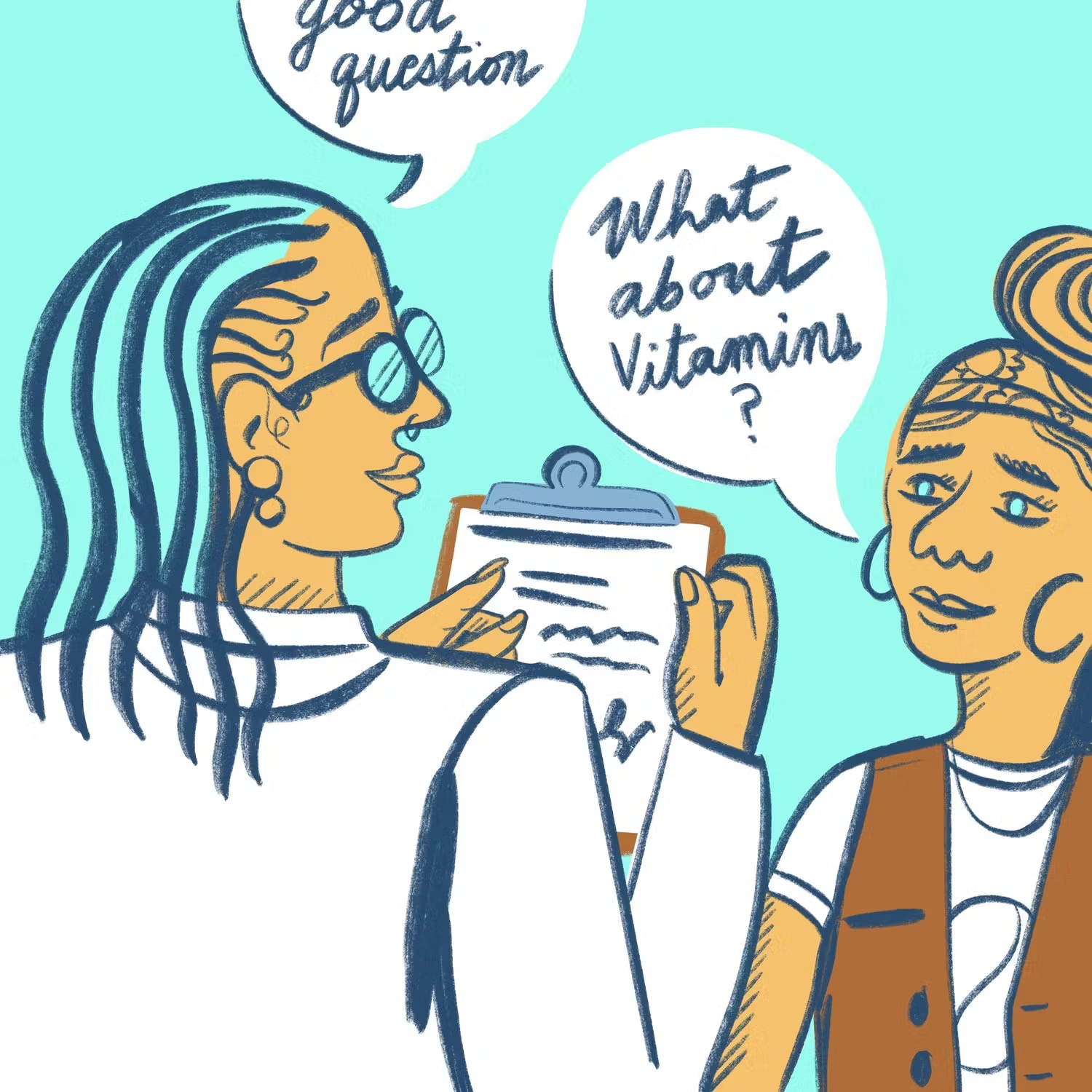WHAT VITAMINS SHOULD YOU GET MORE OF BEFORE AND DURING PREGNANCY?

A well-balanced diet is an important part of living a healthy lifestyle, and at no time is that more crucial than during pregnancy. Your baby needs all kinds of nutrients to grow healthy and strong. If you’re planning on getting pregnant or could become pregnant soon, talk to your health care provider about how best to ensure you get enough of the following vitamins and minerals.
FOLIC ACID
Folic acid is one of the most important nutrients needed during early pregnancy. Our bodies need this vitamin to create genetic material, making it especially important to have during the first days and weeks of your first trimester, when a baby’s body is taking shape. Research also shows getting enough folic acid in the weeks leading up to and during the first few weeks of pregnancy can help prevent a potentially serious birth defect called spina bifida. This condition, which affects over 1,400 babies a year in the United States, develops when the baby’s backbone and neural tube don’t close all the way, putting them at risk for nerve damage and, in some cases, lifelong disabilities.
Because of this, women who are or might become pregnant are recommended to get at least 400 micrograms of folic acid a day, either through a well-balanced diet rich in leafy green vegetables, or by taking nutritional supplements.
IRON
Another important nutrient that helps with your baby’s development is iron. Iron helps the body carry oxygen to your brain and muscles. Without enough of it, women can increase their babies’ risk of being born too soon or too small. For most women, 27 milligrams of iron a day during pregnancy is a good benchmark, though some might need more. If taking an iron supplement, it’s a good idea to take the pill with orange juice or another source of vitamin C because it can help the body absorb the iron better.
In contrast, calcium can block the body from taking in iron, so it’s best to take the iron supplement (or iron-rich foods) at a different time than calcium-rich items like milk or yogurt. Not all prenatal vitamins include iron, which is why it’s important to check the nutrition label to verify you don’t need a separate iron-only supplement in addition to your prenatals.
CALCIUM
Many people already know that calcium is good for strong bones and teeth, making it crucial to include it in your diet during pregnancy, when your baby’s bones are being formed. The best sources of calcium are dairy products, like milk, yogurt, and cheese, but you can also get it from non-dairy sources like broccoli, sardines, and supplements. Most women — pregnant or not — should aim for 1,000 milligrams of calcium daily.
VITAMIN D
Vitamin D works with calcium to build teeth and bones in growing babies, as well as developing strong eyesight and healthy skin. While primarily found in milk products, it’s also present in fatty fish, like salmon. Sunlight also helps the body make vitamin D on its own by converting certain chemicals in the skin. Pregnant women should try to get at least 600 international units a day of vitamin D to protect their health and the health of their babies.
OMEGA-3 FATTY ACIDS
Old wives have been saying for years that fish is a “brain food,” even if they weren’t quite sure why. The reason, as it turns out, is because fish is rich in a nutrient called omega-3 fatty acids. Important for growing and maintaining a healthy brain — especially during pregnancy — this nutrient can be found in a wide range of foods, not just fish, including nuts and seeds, plant-based oils (ex. canola), and fortified foods like milk or yogurt where omega-3s have been added.
Supplements are available, but for most people, eating a healthy, balanced diet rich in low-mercury fish (8-12 ounces per week) is enough to get the fatty acids you need during pregnancy. If you’re looking to take a supplement, however, to increase the amount of fatty acids you get during pregnancy, look for prenatals or stand-alone supplements that contain Omega-3s or DHA on the label.